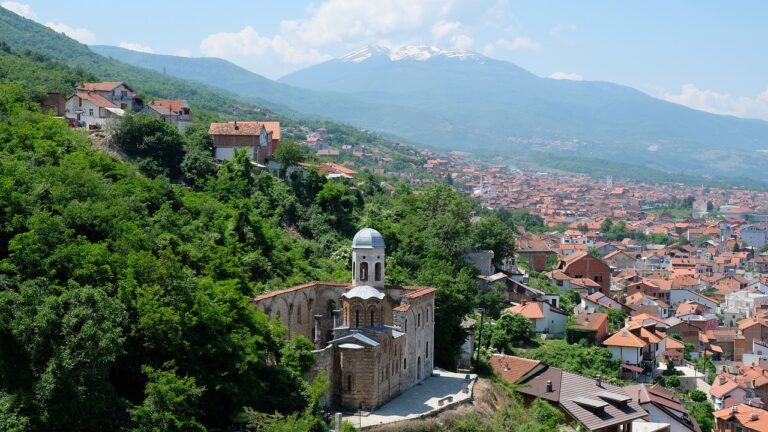After a great deal of bureaucratic drama, Spain has finally decided to recognize Kosovo passports. The UAE has also joined the party by removing visas for Kosovan citizens, allowing them to travel to the Arab state with only their passport for the first time. These are long-awaited changes which represent a big step forward in Kosovo’s relations with the rest of the world. But there is still much more to do – starting with the rest of Europe getting on board with visa-free travel for Kosovars and recognising Kosovo’s sovereignty.
Since its declaration of independence in 2008, my home nation of Kosovo has faced an uphill struggle to gain recognition from the rest of the world. Even today, almost half of the 193 UN member states do not recognise Kosovo’s independence. Even Spain, which now allows travel to and from Kosovo, still does not recognise Kosovo as a sovereign nation.
Still, removing some barriers for Kosovars to travel around the world as Spain and the UAE have done is cause for celebration. Without visa liberalisation, the experience of travel as a Kosovar is chaotic at best and an impenetrable bureaucratic nightmare at worst. Citizens become trapped in a labyrinthine mess of paperwork, endlessly shuttling in and out of the embassies with an arm full of documents only to face visa refusals.
Kosovo has always fulfilled all the requirements to qualify for visa-free access in the EU which, if granted, would negate the need for EU member states to individually recognise Kosovan passports as Spain has done. Since 2018, Kosovo has met the criteria of Brussels’ Visa Liberalisation Roadmap.
Despite, taking steps to lower barriers for Kosovars, EU member states including France remained worried about the potential violation of visa-free privileges by people fraudulently using tourist visas to travel for work.
But this concern is unfounded. Brussels already thought of this problem. If any individual violates the terms of their country’s visa-free status in this way, that person will be banned from entering the Schengen Area for 5 years. There seems to be little standing in the way of Kosovo becoming a visa-free European country other than political manoeuvring and bureaucracy.
After much consideration, the Spanish decision to recognize Kosovan passports was a response to urging from the European Commission. However, Spanish Minister of Foreign Affairs Jose Manuel Albares made clear in his announcement that his country still does not intend to recognise Kosovo’s sovereignty any time soon. The traditional position of the Spanish Government about the independence of Kosovo remains unchanged. Spain refusing to recognise Kosovo is more understandable than most other European countries, given ongoing tensions over Catalonia.

We don’t know exactly why Spain changed its mind on Kosovo passports. They may be worried about unmonitored entrants over Spanish borders, whereby Kosovars could go to Portugal and then enter Spain by bus or other means of transport, excluding aeroplanes. The alternative explanation is that Spain understands accepting Kosovo’s passports lays the foundation for diplomatic and cultural exchange.
Alongside Spain’s decision, the UAE has announced Kosovars are exempt from visa requirements and can enter to stay as short-term tourists. Kosovo and UAE signed a Memorandum of Understanding in January 2024, granting visa-free status visits in both directions. The UAE will benefit from cultural and economic cooperation with Kosovan travellers as a result, and Kosovans like me can enjoy the benefits of travelling around the world a little more freely than before.
In a geopolitical climate plagued by tensions, Kosovo is going against the grain by forging new agreements with countries across the world and achieving hard-fought wins in its long-running fight for visa liberalisation. The war goes on, but in this battle, it was the European Union which finally woke up and saved the day for Kosovo by encouraging member states like Spain to make these changes. Hopefully, this is the first of many such steps forward for Kosovo in 2024.

Arta Haxhixhemajli is a Kosovar researcher, a non-resident Fellow at the German Marshall Fund of the United States and a fellow with Young Voices Europe. Her research covers international relations, security, and geopolitics.



